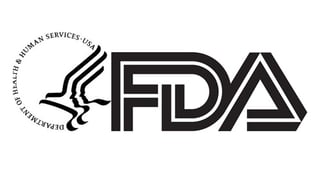State Attorneys General Push FDA on Non-Tobacco Nicotine Products
SILVER SPRING, Md. — A bipartisan coalition of 31 state attorneys general is asking the Food and Drug Administration (FDA) to regulate non-tobacco nicotine products, also known as synthetic nicotine.
In a letter to the agency, the attorneys general urged the FDA to reject marketing authorization for all non-tobacco nicotine products, which are currently being sold without regulatory constraints on their contents, manufacturing, health effects, or marketing claims.
Should the FDA grant marketing authorization to such products, the coalition wants the agency to the same restrictions required of tobacco-derived nicotine products.
A new law signed in March by President Joe Biden gives the FDA jurisdiction to regulate these products and requires that manufacturers now seek FDA approval to sell them.
"Synthetic nicotine manufacturers are marketing an unregulated combination of chemicals used to create nicotine and to flavor their products in ways that appeal to young people. We don't know the long-term health effects of many of these ingredients, but we do know that these products have been major contributors to the recent epidemic of youth e-cigarette use," Illinois State Attorney General Kwame Raoul said. "That is why we are calling on the FDA to take swift action to regulate non-tobacco nicotine products."
In the June 10 letter, the coalition argued that synthetic nicotine products currently fail to satisfy the FDA's public health standard.
If the FDA grants marketing authorization to non-tobacco nicotine products, despite the health risks to consumers and especially to youth, Raoul and the coalition maintain that the FDA must impose the same restrictions required of tobacco-derived nicotine products. This would include:
- A ban on all products that include a flavor other than tobacco;
- Strict regulatory requirements regarding their contents, manufacturing, and effect on users' health;
- Warnings concerning their addictiveness; and
- Manufacturers should be required to validate health claims made about their products.
Raoul, Idaho Attorney General Lawrence Wasden, Nebraska Attorney General Doug Peterson, and Pennsylvania Attorney General Josh Shapiro led a bipartisan coalition. Joining them on the letter are the attorneys general of Alaska, California, Colorado, Delaware, District of Columbia, Guam, Hawaii, Maine, Maryland, Massachusetts, Michigan, Minnesota, Nevada, New Hampshire, New Jersey, New Mexico, New York, North Carolina, Northern Mariana Islands, Oregon, Puerto Rico, Rhode Island, South Dakota, Vermont, Washington, Wisconsin, and Wyoming.
The federal appropriations bill, signed by Biden on March 15, included a section granting the FDA authority to regulate tobacco products that contain nicotine not made or derived from tobacco (e.g., synthetic nicotine). The FDA officially added synthetic nicotine under its regulatory umbrella on April 14.
The new authority closes a loophole that allowed some vapor companies to remain on the market despite the FDA's focus on removing flavored electronic cigarettes and vapor cartridges in early 2020.
With the law in effect, manufacturers, distributors, importers, and retailers of tobacco products containing non-tobacco nicotine must ensure compliance with applicable requirements under the Federal Food, Drug, and Cosmetic Act, as Convenience Store News reported. The requirements include:
- Not selling these products to persons under 21 years of age (both in-person and online);
- Not marketing these products as modified risk tobacco products without FDA's authorization; and
- Not distributing free samples of these products.

